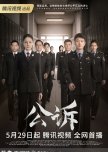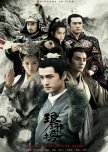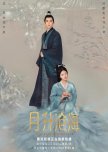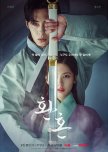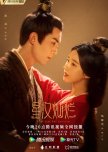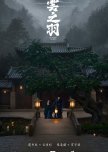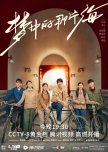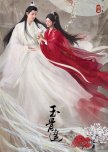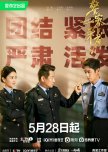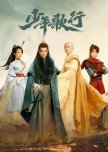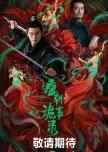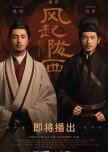Fang Yuan, the chief judge of the Xingcheng District People's Court, and Song Yu Fei, the deputy chief judge of the Criminal Division of the Rongzhou Intermediate People's Court, are the apprentices of Zhang Wei Min, the vice president of the Xingcheng District People's Court. The three teachers and apprentices dedicated their youth and passion to China's judicial career. Now, Fang Yuan's apprentice and legal assistant, Zhou Yi An, has just become a post-judge. The former group of mentors and apprentices is now scattered to different trial positions and continues to shine. The sudden drop of Ye Xin, a young female cadre of the Supreme Court Research Office, brought more changes to the Xingcheng Court. These three generations of court personnel, in each case, have carried forward the fine tradition of court help and guidance, and they have always adhered to the bottom line of justice, morality and humanity. (Source: DramaWiki) Edit Translation
- English
- ภาษาไทย
- magyar / magyar nyelv
- עברית / עִבְרִית
- Native Title: 底线
- Also Known As: Di Xian , Ting Qian Wu Song , 庭前无讼 , 底線 , 庭前無訟
- Screenwriter: Fei Hui Jun, Li Xiao Liang
- Genres: Law, Drama
Where to Watch Draw the Line
Cast & Credits
- Jin DongFang YuanMain Role
- Cheng YiZhou Yi AnMain Role
- Elvira CaiYe XinMain Role
- Wang Xiu ZhuSong Yu FeiSupport Role
- Wang Zi QuanXu Tian [Lawyer]Support Role
- Wang Jin SongChen KangSupport Role
Reviews

Justice is blind and not heartless.
I have never had a good impression of China's opaque legal system so I was both curious and skeptical about Draw the Line. This drama is a fascinating tour of the inner workings of China's grassroots level judicial system. It shines a surprisingly candid spotlight on gaps in the Chinese judicial system from rapid economic growth, modernisation, changing social values and the proliferation of the internet and social media.Fang Yuan is the presiding judge at the Xingcheng District Court, a local people's court of first instance which handles both civil and criminal cases. Fang Yuan's division handles civil cases while criminal matters are adjudicated by his colleague Song Yufei, a deputy chief judge of the intermediate people's court. What surprises me most is how hands on the grassroots judges are in the Chinese legal system. They do a lot of field work themselves from directing the gathering of evidence to personally interviewing plaintiffs, defendants and witnesses. The role of lawyers is so passive and marginalized it is as if they are for decorative purposes only. For civil cases, the court first seeks to resolve conflicts through court sponsored mediation. If an agreement, is reached, it becomes legally binding once it is reviewed and documented by a judge. Mediation can be a draining process, especially when dealing with less educated, unreasonable and belligerent citizens. Thus beyond legal knowledge it takes a combination of investigative and persuasive skills and a healthy dose of patience to be effective as a grassroots judge in China.
The arrival of Ye Xin, a young researcher from the Supreme Court is met with speculation and trepidation by the close knit community at the Xingcheng District Court. She is an annoying character in the beginning because she has no practical experience, and adopts a rigid by the book approach to interpreting the law. Experienced grassroots judges like Fang Yuan and his mentee Zhou Yian are more pragmatic about bridging the inevitable gaps between static legal codes and the myriad complexities of real life cases. Still it is never easy to figure out where to draw the line between the letter of the law and the spirit of the law. Beyond the heavy case load, the courts also face the challenge of social media, where cases are tried in the court of public opinion on distorted facts. Although the judges do their best to weigh the the practical, moral and humane aspects of their decisions, they don't always get it right. They have their own flaws, biases and personal or familial pressures. These dynamics set Chinese Supreme Court down the path of judicial reform, where case law is increasingly implemented instead of just statutory law.
The impeccably curated cases create a fascinating mosaic of moral, familial, commercial and social issues great and small confronting the Chinese public today. They are based on thought provoking and relevant real life cases; some of which have sparked public debate and controversy. The drama is very even handed about presenting both the plaintiff and defendant's point of view. The writers very effectively showcase resembling cases to illustrate the range of different human emotions, motives and outcomes. There are cases where two sons are driven to kill because of their mother, sexual harassment cases with different power dynamics and common reasons for the breakdown of marriages and related child custody disputes. From the mundane and petty to the serious and complex, the cases strike a riveting, sometimes heart rending chord because we have all read about or heard about or experienced something similar. At the same time, these cases deftly illustrate the many challenges faced by grassroots judges. They are the everyday heroes who navigate the grey areas of the law and morality with compassion to deliver justice that is blind and not heartless.
The cast in this drama needs no introduction and does a stellar job in drawing out the complex human aspects of the cases. Jin Dong delivers a multi-faceted Fang Yuan who is everything to everyone at work - a stern and impartial judge, a tireless and persuasive mediator, a wise mentor and a playful colleague. This leaves him with much less to give at home as a father and husband. We see a very down to earth version Cheng Yi as the introspective Zhou Yian, the young judge who must surely cut his own hair! He convincingly navigates a crisis of conviction after making some mis-steps. Both Yian and Cai Wenjing's Ye Xin are the characters who show the most growth in this drama but the characters that move me most are either defendants or plaintiffs in some of the more heart rending cases.
The best, most thought provoking case to me is the one about the roommates that is analogous to tripping a friend to escape a bear attack. Even though all the cases are interesting, there are too many of the cases in the back half that personally entangle various court personnel. This requires repeated suspension of disbelief in terms of how impartial and self sacrificing the various protagonists managed to be. It also highlights in my opinion an area that still needs judicial reform, which is how conflicts of interest are handled. It seems there is no requirement for judges to recuse themselves when their colleagues end up as defendants. The ending case is just too personal with too many coincidences and conflicts and an outcome that I find the least equitable with some defendants getting off too lightly while others are very harshly indicted. It is not the right note to end on and as a result I rate this an 8.0 instead of an 8.5. Overall a highly recommended, eye opening, thought provoking and fascinating watch with heart felt performances from some of my favourite Chinese actors.

A must watch drama for 17+
Why? Read till the end…I didnt expect a court drama will be so interesting like this, the cases are from real events and very well choosen. Lots of famous real cases from this drama encourage us to think and understand the dilemma of both sides (defendant and plaintiff), how judges have to balance between law and morality.
The cases often spark debates, force us to rethink and open our mind in unexpected ways.
Acted by Jin Dong, Cheng Yi and lots of other veteran and excellent actors, undoubtedly they make this drama enjoyable to watch.
There are countless life lessons we cant ever get from ordinary dramas and we will regret if we miss them out.
So, for new watchers, just try to watch 2-3 series to see if you get hooked with the stories or not.
*The english subs is not the best, but still understandable. Its available on mangotv youtube channel too, where the translation seems better there.
**updated after finishing 40 episodes without skipping any scenes (which is rare nowadays)
Till the end, the plot flows smoothly, no dragging, fillers, etc.
Draw the Line is a rare gem and a must watch drama for 17+ people, not because of xxx of course, hahaha, because it needs deep comprehension and matured thinking to be able appreciating this kind of drama :D
It also teaches us to be aware on how to “draw the line” in our own life, since we are facing bad/good/grey area and have to make decisions everyday.
So if you are 17+, you must enjoy DTL, if you dont enjoy it, then you should call your parents to watch it, hahaha

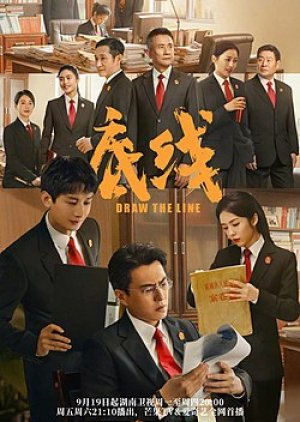






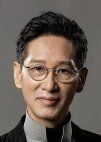

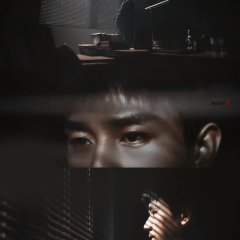

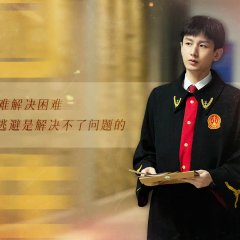
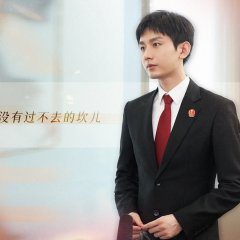
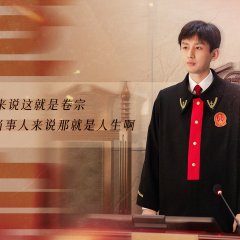
 1
1
